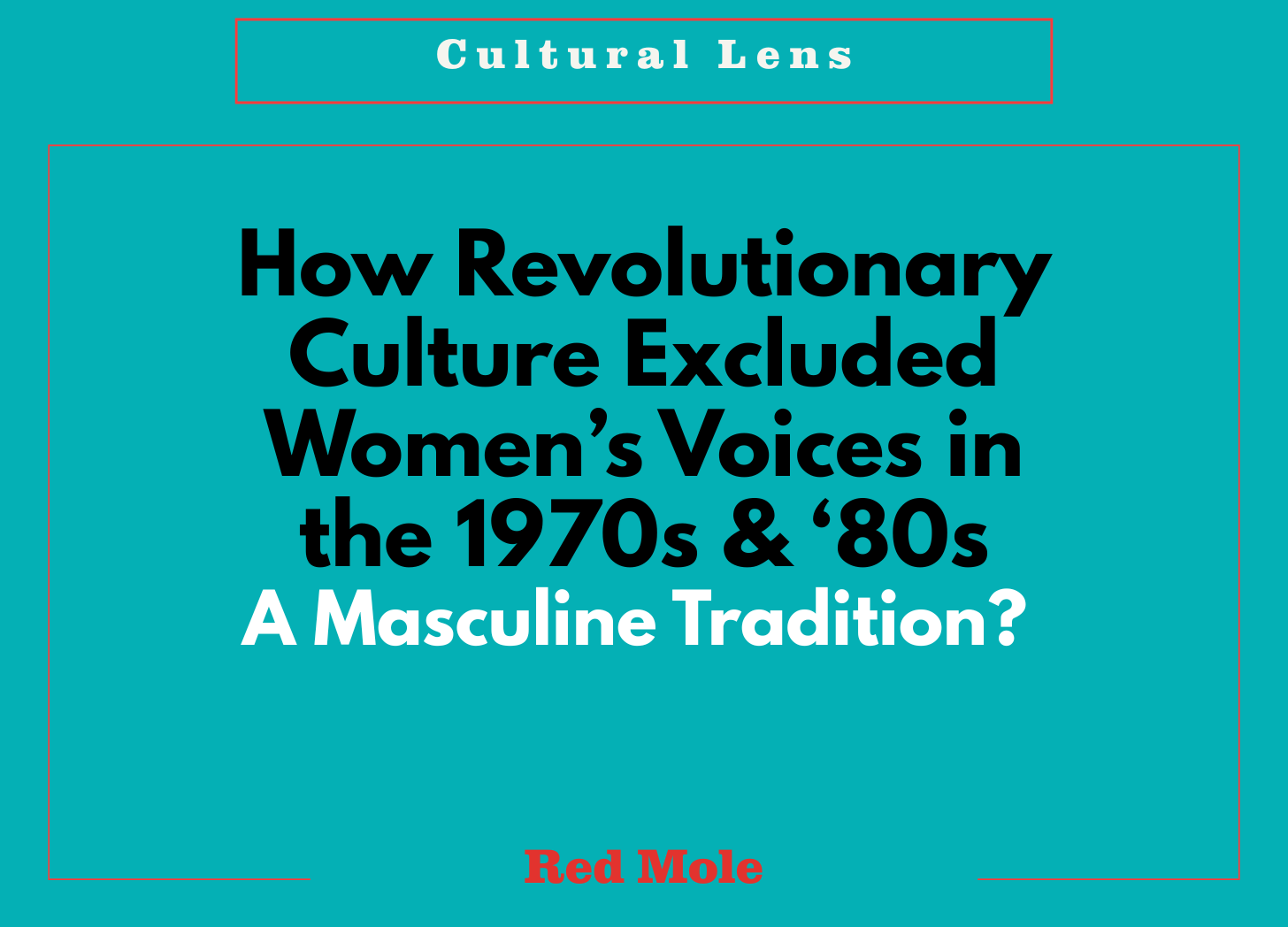Revolutionary movements inherently aim to dismantle existing power structures and forge new societal norms. In the 1970s and 1980s, the Fourth Internationalist magazine in Britain, International, tracked a pervasive tradition that often excluded or marginalised women's voices: male-dominated left groups and parties, with a Marxist theory that had not done enough to place women and women’s struggles at their core, or liberate men from patriarchal thought. This led to a disconnect between stated ideals of liberation and the lived experiences of female revolutionaries. Despite calls for radical social change, many socialist organizations struggle to move beyond conventional gender roles and fully integrate women's liberation into their revolutionary agendas.
A Masculine Tradition in Revolutionary Circles?
This tradition manifests in various ways within revolutionary culture, often stemming from a failure to critically examine ingrained patriarchal structures. Critics have pointed to "male dominance within the nuclear family and in the trade unions, as well as in all other organizations" as a significant issue. This dominance extended into the very theory and practice of revolutionary movements. Many socialist organizations were criticized for being "far from being 'revolutionary' in their approach to the family or to sexual freedom." Indeed, "few if any male socialists fully accept the need for such a revolution for women," highlighting a foundational resistance to truly revolutionary gender dynamics within the ranks. The "general theory of their revolutionary movement" itself was often seen as inherently male-dominated, neglecting the specific concerns and needs of women.
The perception of women's involvement in student politics, often a breeding ground for revolutionary thought, also revealed this bias. Such participation was sometimes dismissed as a "mere extension of bourgeois family life, or to put it bluntly, a substitute for sex," trivializing women's political engagement. This demonstrates a prevalent cultural blindness to the genuine contributions and motivations of women within these spaces.
Exclusion from Formal Political Processes
Direct evidence indicates that women were "still largely excluded from the formal political processes" within revolutionary and political organizations. This exclusion meant that despite their commitment to the cause, women often found themselves on the periphery of decision-making and strategic formulation. The Women's National Co-ordinating Committee (WNCC) campaigned on issues like equal pay, yet the broader political landscape, including revolutionary movements, failed to grant women equal access to power and influence.
Lack of Concern and Integration
The "masculine tradition" was further underscored by a general "lack of concern" for women's issues within some revolutionary movements. For example, the Irish Republican movement was noted for having "not demonstrated any real concern with the position of women." This critical oversight meant that, while fighting for national liberation, the specific forms of oppression faced by women were not adequately addressed or prioritized.
The experience of prominent female revolutionaries like Mairin Keegan vividly illustrates this systemic issue. Keegan, a "principal source of political thinking" within the Provisional IRA, ultimately "rejected Sinn Féin because she was unable to develop on what she felt was a male-dominated movement." Her decision to distance herself from a key revolutionary organization because of its entrenched "masculine tradition" serves as a powerful testament to the stifling environment women often encountered.
The Counter-Narrative: Women's Liberation as Essential
Despite these exclusionary tendencies, the emerging women's liberation movement strongly asserted its place as a crucial and inseparable part of the broader class struggle and revolutionary project. Conferences and initiatives by groups like "Socialist Woman" aimed to develop a comprehensive "revolutionary theory for women's liberation," arguing that the struggle for women's freedom was "at the heart of revolutionary socialism." They called to combat "male dominance within socialist organizations and trade unions" directly, advocating for a fundamental transformation of both society and the revolutionary movement itself.
Publications like The Red Mole played a role in acknowledging and supporting the women's liberation movement, explicitly stating their intention to "keep in close touch with them." This supportive stance from a revolutionary publication indicates a growing recognition that true liberation necessitates confronting internal patriarchal biases.
In conclusion, the tension between the revolutionary ideals of a transformed society and the persistent "masculine tradition" within revolutionary culture reveals a significant hurdle in the path towards comprehensive liberation. The ongoing struggle to fully incorporate women's voices and dismantle male dominance within these movements remains essential for achieving a truly transformative and inclusive revolutionary future.
Further Reading
To further explore the themes discussed in this article, the following articles from International are highly recommended:
Margaret Coulson, "Women's Liberation: Context and Potentialities", International, Vol. 1, No. 4, 1971. This extensive article provides a comprehensive analysis of the subordination of women in capitalist society, including the domestic division of labor and the patriarchal family, and lays out a framework for women's liberation.
Valerie Coultas, "Beyond the fragments?", International, Vol. 5, No. 2, Spring 1980. This piece critically examines the political shortcomings of orthodox Leninism regarding women's liberation and discusses the resistance of male-dominated left groups to feminist critiques, specifically mentioning Tony Cliff.
Beatrix Campbell, Celia Pugh, Sheila Rowbotham, and Joan Smith, "The women's movement and the party", International, Vol. 5, No. 1, Autumn 1979. This article delves into the relationship between the women's liberation movement and traditional Marxist groups, highlighting the need for women's self-organization and a more comprehensive understanding of gender oppression.
Margaret Ward, "Feminism and Marxism" (Letter), International, Vol. 1, No. 5, May 1986. This letter directly addresses the integration of feminist demands into Marxist theory, emphasizing the centrality of economic struggle to the subordination of women and critiquing the traditional Marxist approach to women's questions.





PS If you read just one thing, the FI's 1979 resolution is the place to start.
https://fourth.international/en/world-congresses/535/50
In the 1970s, the Fourth International developed its position on the strategic necessity of an autonomous women’s movement (consolidated in the 1979 resolution). This does not come through in all our reference materials, since they are mostly periodicals aimed at the broad vanguard.